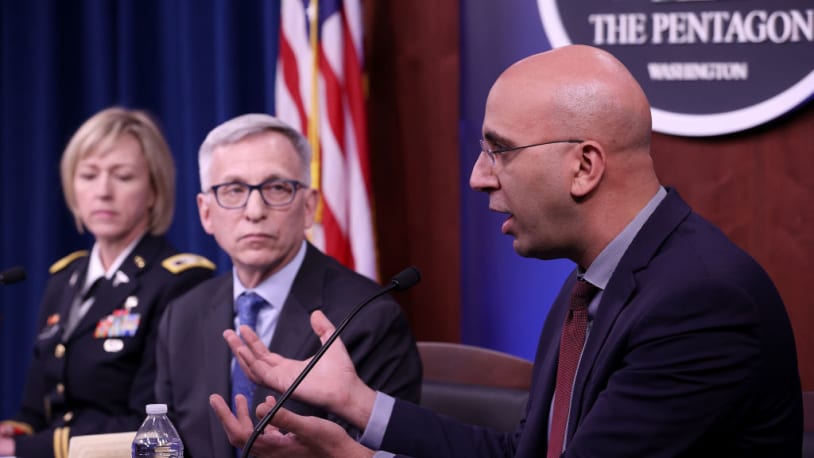
Walter Reed military scientists testing vaccine that could protect against Omicron, future COVID variants
Scientists at the Walter Reed Army Institute of Research spent nearly two years developing a COVID-19 vaccine that should protect people against the new Omicron variant as well as all past SARS-origin viruses and presumably future coronavrius strains as well, Defense One reports. The Spike Ferritin Nanoparticle (SpFN) vaccine showed promising results in animal trials and Phase 1 human trials that wrapped up this month; it still needs to undergo Phase 2 and Phase 3 human trials.
“We decided to take a look at the long game rather than just only focusing on the original emergence of SARS, and instead understand that viruses mutate, there will be variants that emerge, future viruses that may emerge in terms of new species,” Dr. Kayvon Modjarrad, director of Walter Reed’s infectious diseases branch, told Defense One. “Our platform and approach will equip people to be prepared for that.”
Unlike other vaccines, Defense One reports, “Walter Reed’s SpFN uses a soccer ball-shaped protein with 24 faces for its vaccine, which allows scientists to attach the spikes of multiple coronavirus strains on different faces of the protein.”
The Phase 1 trials took longer than expected because it was hard to find subjects who had neither been infected with the coronavirus or inoculated against it, Modjarrad said. The next trials will look at how the vaccine interacts with people who were inoculated with a different vaccine or recovered from a COVID-19 infection. “With Omicron, there’s no way really to escape this virus,” he said. “You’re not going to be able to avoid it. So I think pretty soon either the whole world will be vaccinated or have been infected.” Read more about the vaccine at Defense One.
Scientists at the Walter Reed Army Institute of Research spent nearly two years developing a COVID-19 vaccine that should protect people against the new Omicron variant as well as all past SARS-origin viruses and presumably future coronavrius strains as well, Defense One reports. The Spike Ferritin Nanoparticle (SpFN) vaccine showed promising results in animal trials and…
Scientists at the Walter Reed Army Institute of Research spent nearly two years developing a COVID-19 vaccine that should protect people against the new Omicron variant as well as all past SARS-origin viruses and presumably future coronavrius strains as well, Defense One reports. The Spike Ferritin Nanoparticle (SpFN) vaccine showed promising results in animal trials and…